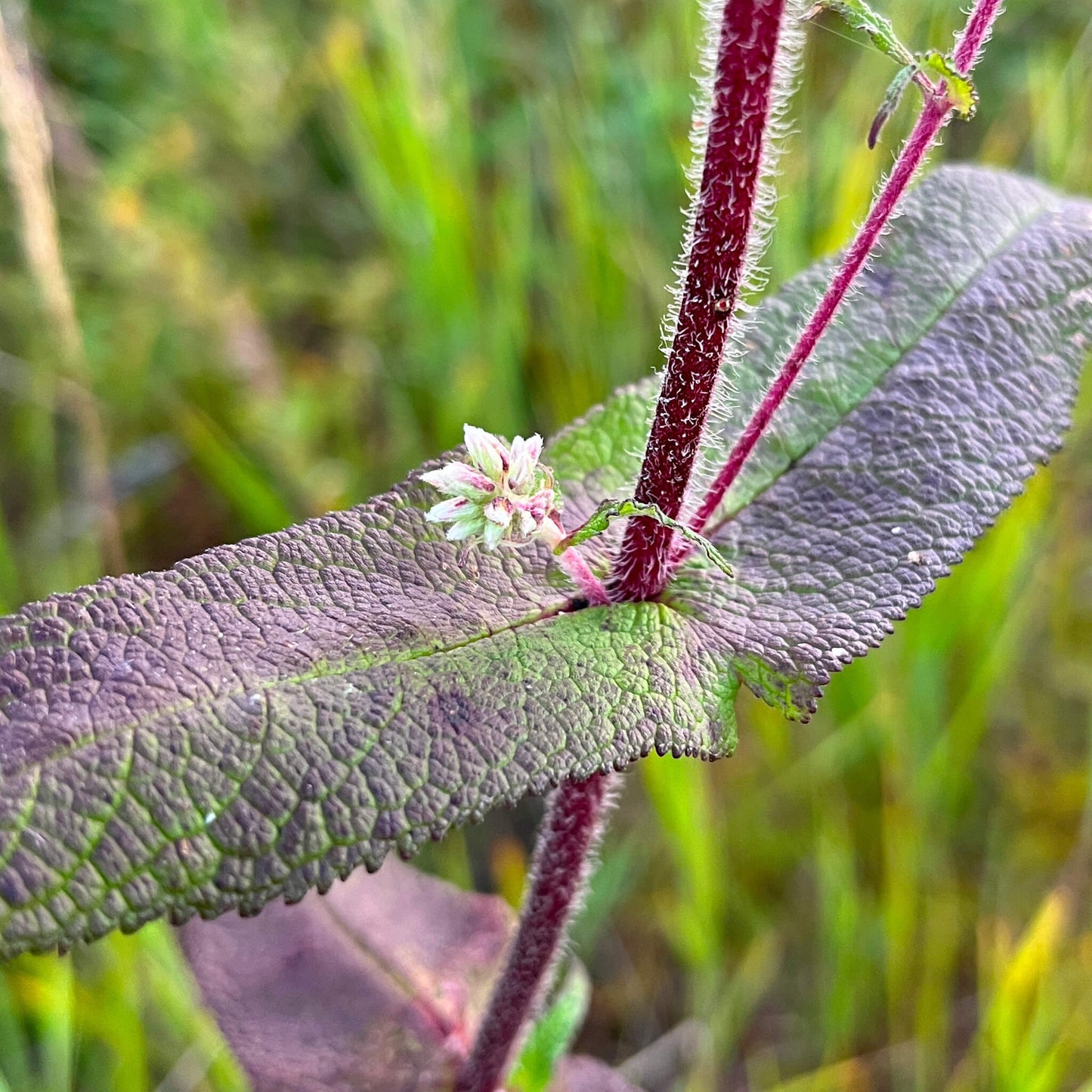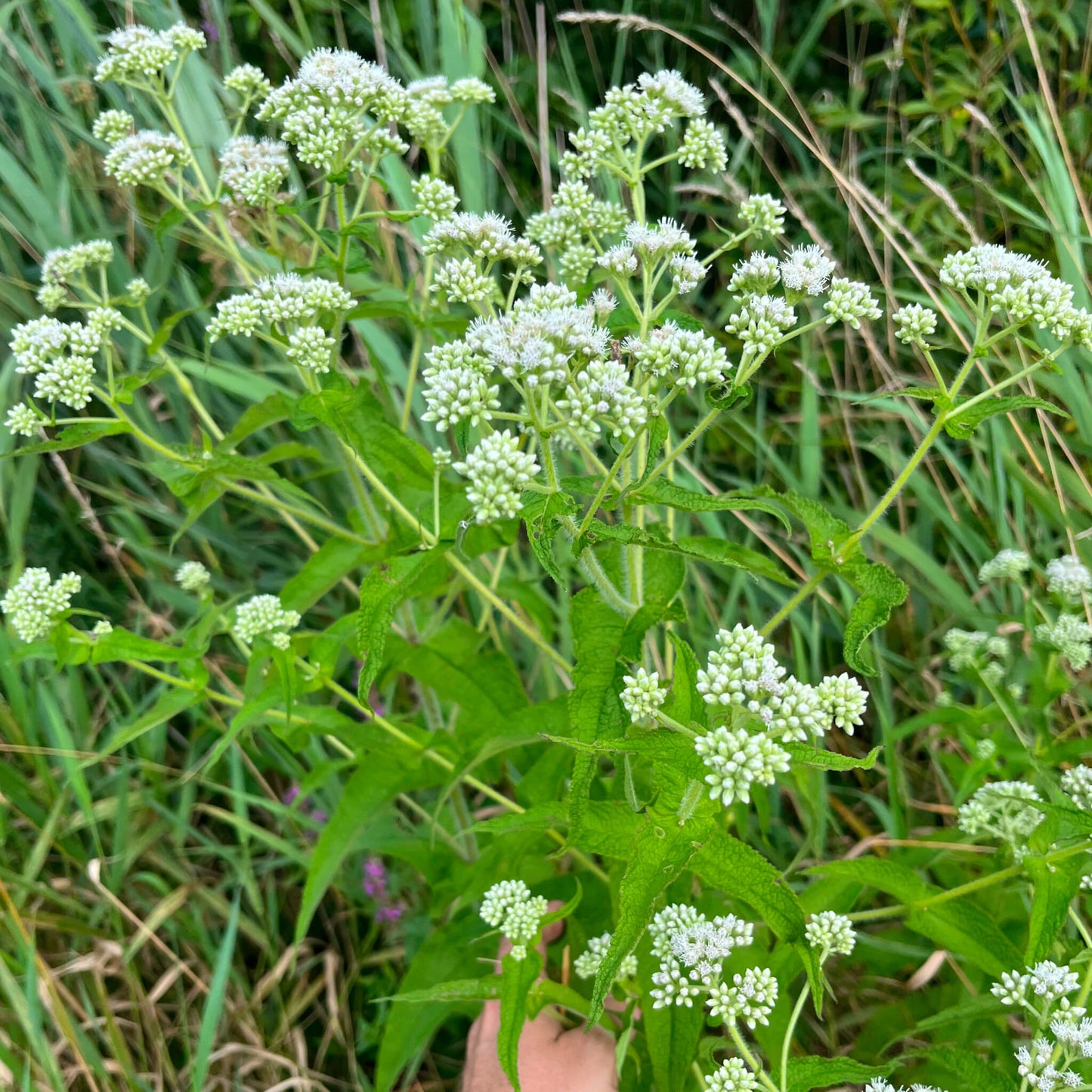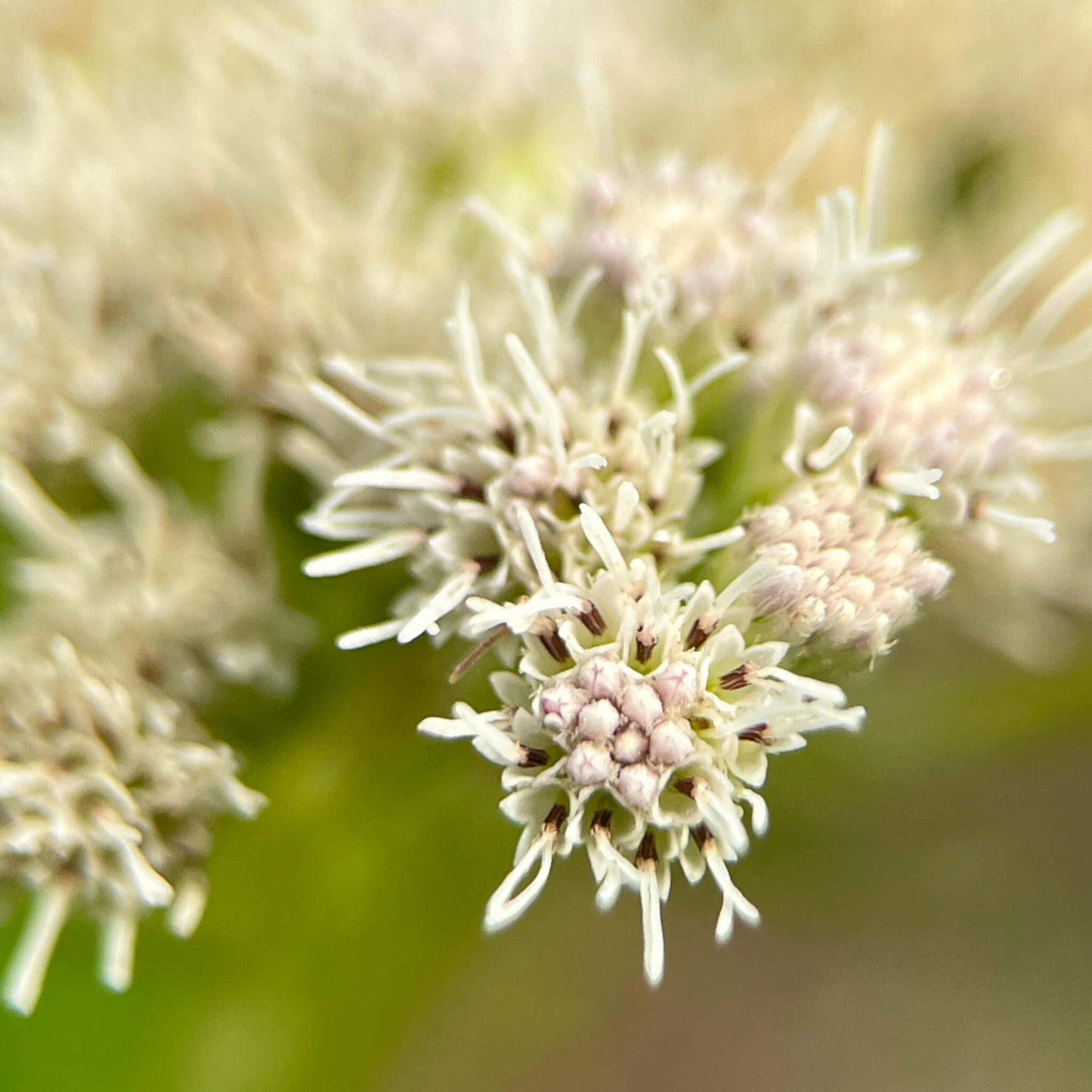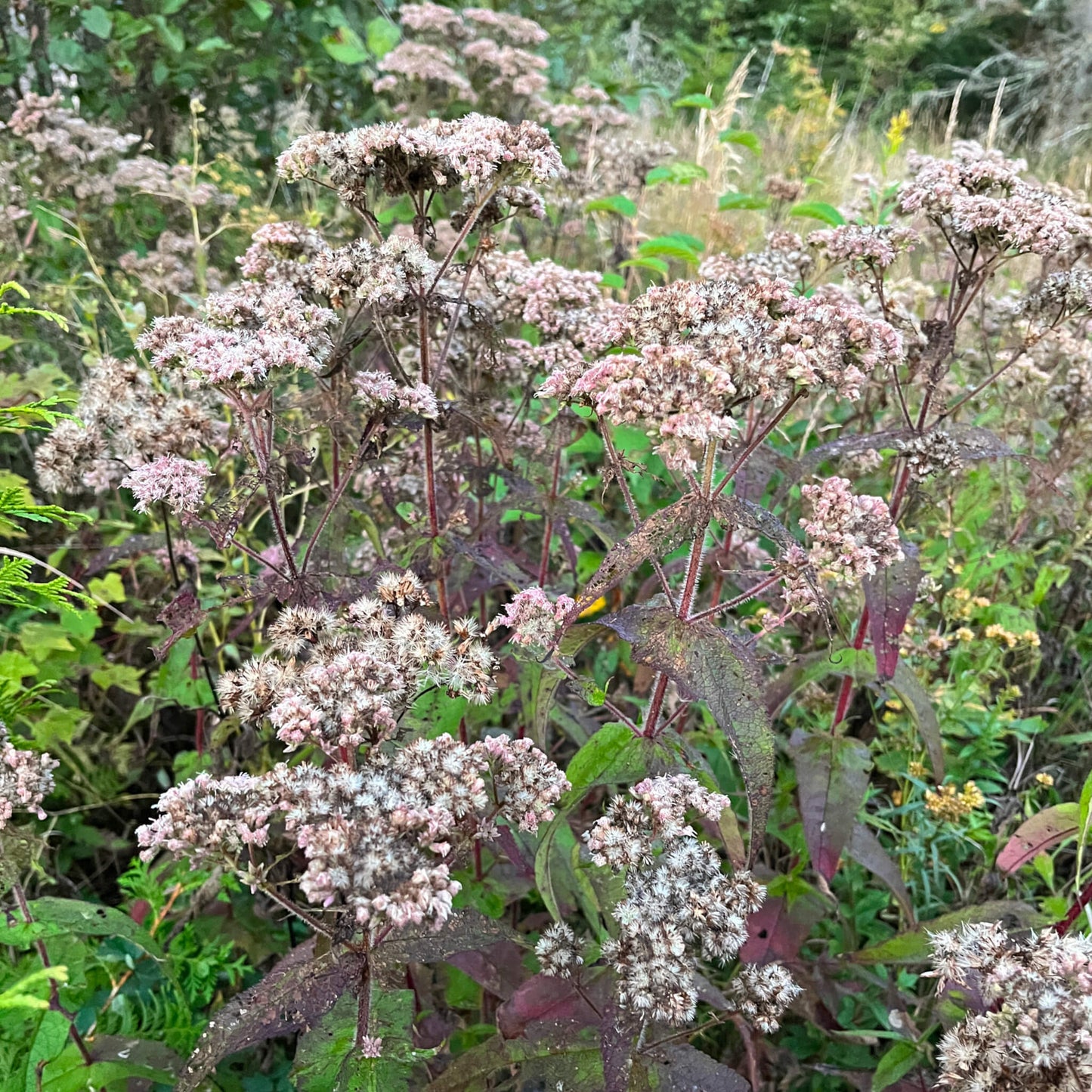This site is protected by hCaptcha and the hCaptcha Privacy Policy and Terms of Service apply.
For successful seedlings,
see the growing notes at the bottom of the page!
Common boneset (Eupatorium perfoliatum) is a tall perennial plant that can grow over 1.5 metres in height, making a spectacular addition to garden beds. Its most distinctive feature is its perfoliate leaves—appearing as though the stem pierces through the middle of the leaf, giving it its specific name "perfoliatum" and a unique appearance. Small white flowers clustered in dense heads bloom in summer, attracting numerous pollinators. This plant thrives in wet areas such as the edges of ponds or constantly moist soils, where it provides abundant nectar for bees, butterflies, and other beneficial insects. Common boneset is an excellent choice for naturalized gardens or for stabilizing the edges of water bodies.
Medicinal and Culinary Uses
In modern herbal medicine, common boneset is primarily used for its fever-reducing and expectorant properties, especially in the treatment of fevers and respiratory infections. Its leaves and flowers are used in teas to treat colds, the flu, and body aches associated with fevers.
Ecological Roles
Common boneset plays an important ecological role in wetland environments. Its flowers are a rich source of nectar, making it particularly attractive to pollinators such as bees, butterflies, and other insects. After the flowering season, its seeds provide food for seed-eating birds, contributing to the biodiversity of gardens and natural areas. With its strong root system, common boneset also helps stabilize wet soils, particularly around water bodies, where it helps prevent erosion. This plant is a valuable addition to ecological gardens, supporting local wildlife while enhancing the landscape.
Common boneset seeds require cold stratification to ensure germination. See the cultivation notes below for more details.
Akène cannot assume any responsibility for the use of plants for therapeutic purposes. Always seek advice from a professional before using a medicinal or edible plant.
Sowing and Growing
Technical Details
Seeds per packet: 200
Family: Asteraceae
Scientific name: Eupatorium perfoliatum
Life cycle: Perennial
Hardiness zone: 3
Soil type: Silty to clayey
Soil moisture level: Humid to wet
Soil - additional attributes:
Light: Sun, partial shade
Blooming: July to September
Spacing: 60
Height: 150 cm
Deer resistance: High
Stratification: 60 days
Scarification: No
Germination time: 10 to 20 days
Sowing depth: Asteraceae



